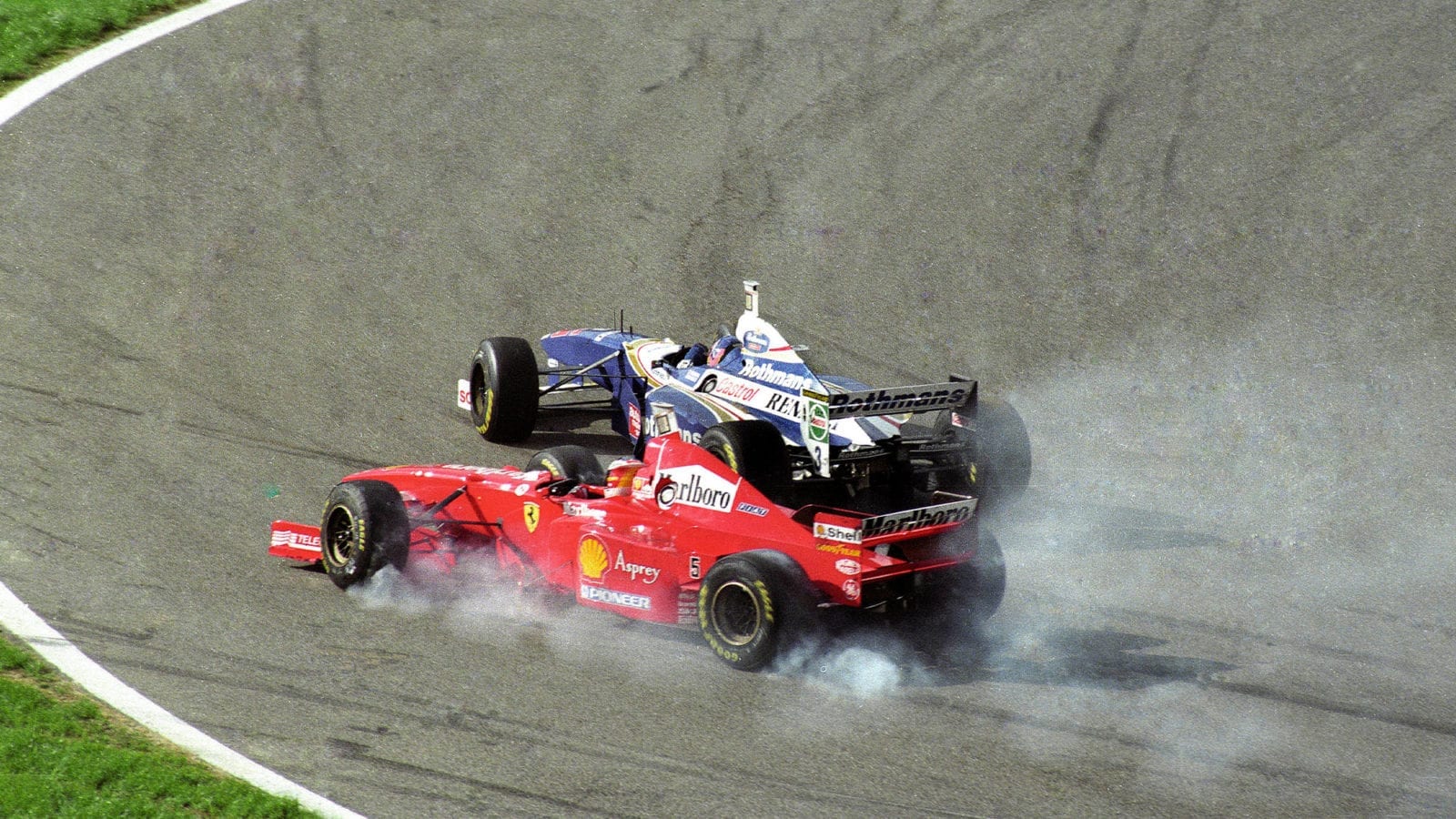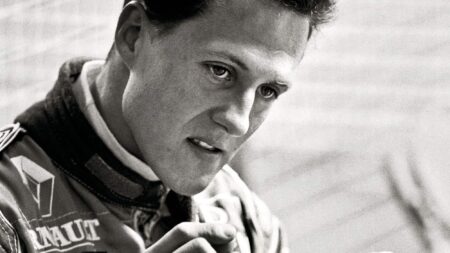Perhaps, in a perfect world, the champion in any given season would be the best driver of his time, but in the circumstances of Jerez it pleased me that Villeneuve, rather than Schumacher, took the title this time there is also, after all, surely a case to be made for the World Champion ideally to be the man with the most race wins. In my mind, it has always been slightly farcical that Mike Hawthom, with one victory, took the world title in 1958, from Stirling Moss, who had four.
In 1997 Villeneuve was victorious in seven Grands Prix, and by his own admission it could, and should, have been several more than that. Undoubtedly there were occasions when he failed to get the most from the Williams-Renault, and times, too, when he made mistakes. We should remember, though, that this was only Jacques’ second season in F1, and throughout it he dominated his team mate, the over-hyped Heinz-Harald Frentzen. Fought fair, too.
A curiosity of the season was that Villeneuve and Schumacher, the two championship protagonists, almost never battled directly on the track until the moment that settled the issue in Spain. There were indeed some remarkably dull races this year, but the title fight did crackle into life towards the end, swinging first this way, then the other.
It was a pleasure, at this late stage, to note team work coming into play, in a manner rarely seen in the modern era. At Suzuka, for the first time in their two seasons as team-mates, Eddie Irvine was on the pace of Schumacher, and able to be of assistance to him. In the peculiar circumstances of Japan Villeneuve was racing under appeal against disqualification, well knowing he would forfeit any points scored here the two Ferrari drivers anticipated Jacques’ options, and concocted a plan to get the better of him.
The strategy worked to perfection, Irvine hurrying at the right moment, then later dawdling, holding up the Williams while Schumacher made his escape in the lead. Ferrari drivers have done this before: many were reminded of Casablanca, the final race of 1958, when Phil Hill selflessly surrendered second place to Hawthorn, allowing him the points he needed for the title. And six years later, on the final lap in Mexico, Lorenzo Bandini did exactly the same for John Surtees.
Villeneuve was always on a loser at Suzuka, for he was fighting a lone battle against the Ferraris, Frentzen simply not able to support him, but at Jerez, Heinz played a more central role, delaying compatriot Schumacher at a crucial moment, allowing Villeneuve to close in. This time it was two Williams against a single Ferrari, for Irvine was off the required pace, his only contribution to Schumacher’s quest a childish attempt to shake Villeneuve’s equilibrium by persistently getting in his way during practice.


